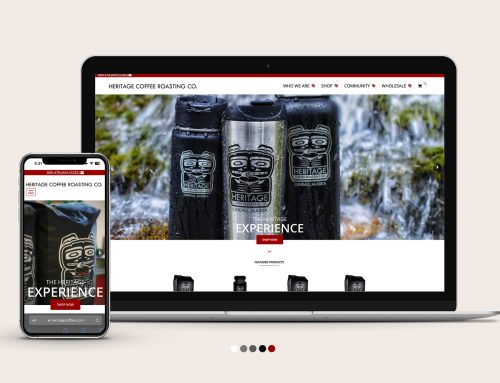You may be hearing a lot about Wix, Weebly, Squarespace and other do-it-yourself website builders. If you are doing research online or listening to radio and podcasts, you’ve probably come across their names. It is likely no surprise, since Wix.com has over 88 million websites published. Just because they are popular, however, does not mean they are right for you. After all, what do you want a website for? Most likely it is to generate awareness of your company and become easily found by your prospects. The sheer fact that Wix alone has 88 million websites on the internet means that having a Wix-built website doesn’t differentiate you!
It takes more than a functional, handsome site to get noticed on the web. Here are 3 big reasons why website builders like these don’t work for B2B websites if you considering just doing it yourself:
1. They are not all responsive
2. They are not less expensive once you factor in your time
3. Simply getting online isn’t what it used to be
They are not all responsive
There are very few website template characteristics that are more important than being responsive. What does responsive mean? It is a site that looks great on a multitude of different screen sizes and devices – mobile, tablet, desktop. This is important because it was reported earlier this year that in 2015, traffic on mobile devices surpassed that of desktops for the first time. If your website doesn’t look great and operate in a fully functional way on your prospects phone, then you have blown it. Responsiveness is one of the 3 biggest keys to building a great B2B website.
In addition, in nearly all B2B environments you are trying to get the attention of multiple people involved in a buying process. You need to make sure that the user experience as they get to know your service offering is the same across different platforms, viewed by many people at varying times. Building on a responsive template is non-negotiable and many of the DIY website builders will charge you more for a template that meets this criteria.
They are not less expensive once you factor in your time
If you’re considering a DIY website builder, you are most likely an inexperienced web designer. You are looking for an easy, all-in-one solution that you can pay a monthly hosting and software platform fee to and crank out a good looking website over several weekends and pots of coffee. I’m sure you are smart enough to do this…but is this the best use of your time if you are helping to start, run, or grow a B2B enterprise? The answer is absolutely not.
The truth of the matter is building a B2B business demands a dynamic web presence. You will be able to get a very basic website up with a few weeks of writing content, learning the platform and the basics of the software, and deciding what images best support your brand identity. A simple brochure website, however, is not what you need. You need a lead generating online presence that helps feed your sales funnel. That gets us to reason #3.
Simply getting online isn’t what it used to be
It used to be building and launching a new website was a complete project in and of itself. Planning, designing, producing content, and launching took 6 months, and that new site was good for years. Now, getting a responsive website online is absolutely critical, but it is just the starting line, not the finish line. SEO and SEM are now too important for B2B executives not to understand and invest in. In research published by Accenture in 2015 of B2B buyers with budgets of $100,000 or more to spend, a whopping 83% of buyers use supplier websites for online research. That statistic is only getting higher each year – if you cannot be found online through search of prospect-driven keywords then you are missing huge opportunities.
The only way that happens is with a focused and tactical search strategy that is measurable and generates leads. Simply launching a new website doesn’t accomplish that goal. Today, it requires regularly developing content, monitoring key search terms that prospects are using, and generating relevant and useful content to drive the right kind of traffic to your site. Once those prospects are on your site, it is important to not only give them the right content and inform them, but also provide calls-to-action that lead them to engage with you and become a viable lead. This is where the inbound marketing engine comes in.
So if you are responsible for a new website for your B2B company, shift your focus away from an ‘inexpensive’ DIY website builder and towards a solution that will address the real problem that your executive team is interested in solving: generating more leads with a strategic approach.
Posted by Russ Waddill – Neos Marketing Blog




